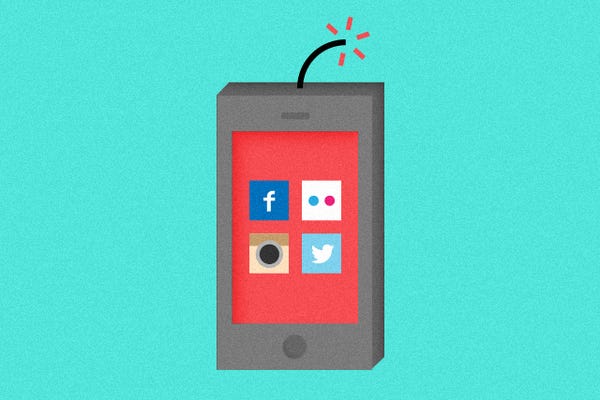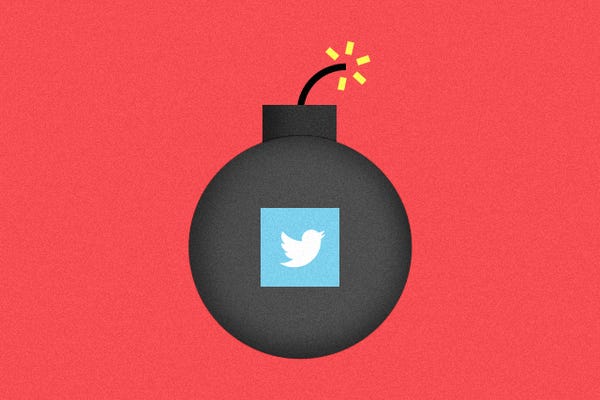This article was last updated on April 16, 2022
Canada: ![]() Oye! Times readers Get FREE $30 to spend on Amazon, Walmart…
Oye! Times readers Get FREE $30 to spend on Amazon, Walmart…
USA: ![]() Oye! Times readers Get FREE $30 to spend on Amazon, Walmart…
Oye! Times readers Get FREE $30 to spend on Amazon, Walmart…
Janie’s typical day went something like this: Wake up. Check Facebook (while still lying in bed). Post something witty — possibly a bit crass — to Twitter. (Janie prided herself on her caustic sense of humor.) Get up. Use phone to snap quick selfie in the bathroom mirror and upload it to Instagram (caption: #hungover #again #ugh). With her long, red hair framing her flawlessly pale face, she looked good, and she knew it. She wouldn’t have posted the photo otherwise.
From there, Janie would get dressed and head to the library to research jobs. For three months now, the search had been fruitless, something she chronicled diligently on Facebook (“Why won’t anyone f*cking hire me!”) and Twitter (“Can’t get job. Is it me? Or is it everyone else? #idiots”). To Instagram, meanwhile, she’d post photos of herself at the beach, out to lunch, or shopping downtown. For someone upset about not having steady work, she sure seemed to be enjoying herself. And, that, of course, was her point. “I might be having a hard time finding a job, but I don’t want people to think I’m sitting around feeling sorry for myself,” she told me.
Janie hadn’t stopped to think that perhaps her inability to get hired might have something to do with her openness on — and her obsession with — social media. After all, she argued, “I’m not doing anything different than what millions of other people are doing.” And, she was right — for the most part. After all, these days, thanks to social media and the feeling of being “watched” it helps to inspire, everyone’s a reality star, whether their circle of followers is in the teens or the tens of thousands.
Social media has provided a platform for just about anyone looking to project a certain image of themselves. It has made us, in many ways, more accessible to one another — and more accountable, too. But, social media can be a road to career trouble.
Scroll through to read Dr. Drexler’s stellar advice on social media and your career.

Twitter, Facebook, Instagram, and the like can be an excellent way for those searching for work to market themselves. Many companies use social media for recruiting purposes, seeking out potential employees who share their philosophy or have good ideas. But, it can also be a way to screen candidates: While you’re busy crafting your personal image, potential employers are busy using it to predict how you might be as an employee.
There’s proof: A recent survey by CareerBuilder found that nearly half of all employers use social-networking sites to research job candidates, rejecting those whose social-media profiles include provocative photos, evidence of drug use or drinking, negative posts about previous employers or coworkers, or comments that might be interpreted as racist, sexist, or ageist. Employers call on social media to monitor and respond to their current employees, too. Who could forget the Justine Sacco scandal? The PR exec pressed send on a last-minute tweet before boarding a 12-hour flight: “Going to Africa. Hope I don’t get AIDS. Just kidding. I’m white!” By the time she landed, she had been very publicly canned.

What’s more, evidence of how much time you spend on social media could give employers reason to worry that the habit could get in the way of actual work. Maria, a marketing assistant, was constantly posting to Instagram, pausing multiple times throughout the day to set up the perfect photograph of her cat, her lunch, the guy on the bus next to her, and, of course, herself. No scenario was off-limits. At any given time, she had at least six Gchat conversations going, making it difficult for her to ever get immersed in a project without being constantly interrupted by a ping. They also made anyone who walked by her desk — her boss included — wonder: How does this woman get any work done?
Posting to Twitter or Instagram or having your Facebook or Gchat open all day alongside your work isn’t just distracting, however. An obsession with everyone’s online goings-on — to the point where you neglect what’s happening in your own life, right in front of you — can fuel feelings of isolation and self-doubt as you wonder if other people are better at their jobs, better-liked, or otherwise moving forward more quickly than you. A 2012 study published in the journalCyberpsychology, Behavior, and Social Networking found that the longer people spent on Facebook each week, the more they agreed that everyone else was happier, cooler, and generally better off.

The answer, though, isn’t to delete all evidence of your social-media presence or to stay offline entirely. Instead, it’s important to clean it up and tailor the image you’d like to craft for yourself as a professional. It’s okay to be a person who likes to have fun, or is sarcastic, maybe even a little subversive at times. People are complex. But, it’s important to balance such posts with observations, comments, or photos of a more serious nature. And, keep in mind, always, that how you present yourself through social media is no different than how you present yourself in a job interview or at the office. So, how can you achieve this balance?

Keep it (more or less) positive. Your Facebook status box is not your best friend. Don’t use it to vent complaints about your friends, your boyfriend, your current employer or coworkers, or even the clumsy Starbucks barista. Keep it classy — and keep your problems to yourself. Instead, during working hours, use social media to praise a coworker, highlight a project you’re proud of, or promote your company. Save the personal posts for after-hours.
Think before you selfie. While your friends or followers may be interested in seeing you lying in bed, lips pursed, in a real-world headshot (emphasis on may), your potential employers are not. They want to know that in hiring you, they’re not going to be inviting an egomaniac into the workplace — or someone who thinks of themselves first. A recent study out of the U.K. found that the selfie phenomenon may be damaging to real world relationships, concluding that both excessive photo sharing and sharing photos of a certain type — including self-portraits — makes people less likeable. What’s more, putting so much emphasis on your own looks can leave others feeling self-conscious about theirs in your presence, and the last thing you want to do is make a coworker or potential employer feel judged. The best advice here is to cut out the selfies entirely — or limit them to every so often, and in a broader context: yourself in front of the Eiffel Tower, perhaps, as a way to highlight a trip to Paris. Not a snap of you in bed at the Hôtel de Crillon.
Privatize. Not quite the point of social media, but if you’re going to insist on being free to write or post whatever you’d like — and want impunity — the only option is to make your accounts private. Similarly, if you find that what your friends post to your wall is a worrisome reflection of you or your beliefs, talk to them about it, turn off the function that allows them to do so, or, if you must, unfriend them.
Use social media for good, not evil. Let’s face it: Your Instagram photos of your Mexican vacation were a branding tool anyway. So, why not take it a step further and use your online presence as an opportunity to present the very best, most marketable sides of yourself? Post about Mexico, but also post about ideas that interest you, projects you’re working on, people who inspire you. You’re not a one-trick pony — your social-media presence shouldn’t be either.
Illustrated by Ammiel Mendoza
Click HERE to read more from Refinery29.

Be the first to comment